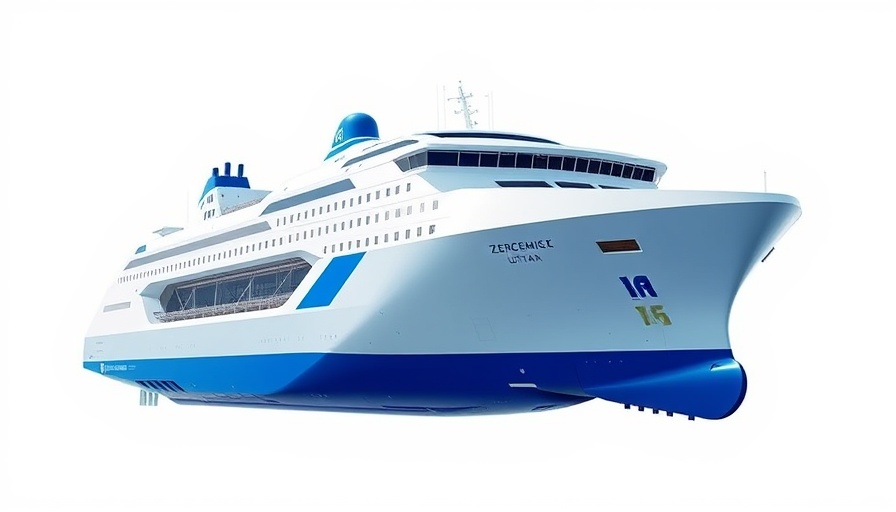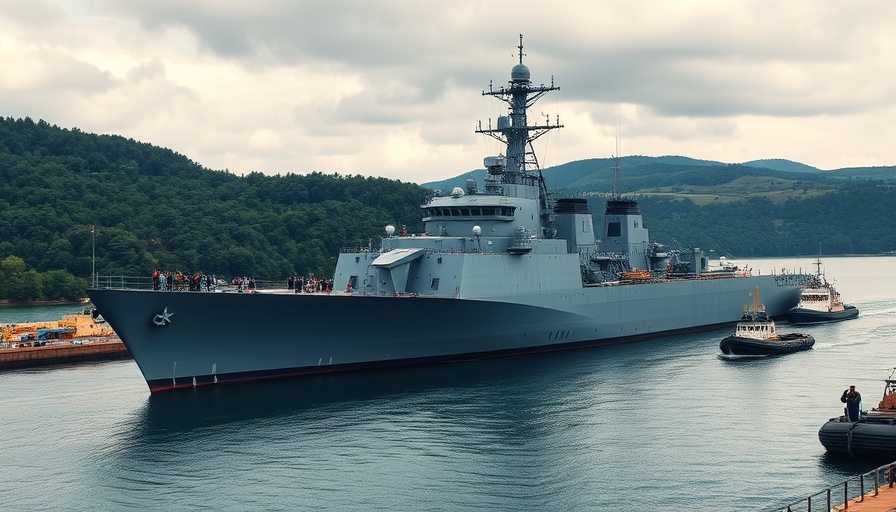
Revolutionizing Maritime Travel: The Future of Zero-Emission Vessels
Pherousa, a company headquartered in Oslo, is on a groundbreaking path towards creating zero-emission ultramax bulk carriers that could redefine the maritime industry. With their latest achievement, an Approval in Principle (AIP) granted by The American Bureau of Shipping (ABS), the company's innovative ammonia-to-hydrogen cracking technology is set to fuel a fleet designed for sustainability.
At the recent Nor-Shipping event, industry leaders gathered to witness the unveiling of Pherousa’s state-of-the-art plans for these vessels. With a deadweight tonnage of 64,000 dwt, these bulk carriers aim to serve the global copper industry, ensuring that copper—an essential component in renewable technology—can be transported without leaving a carbon footprint. The chairman of Pherousa, Hans Bredrup, expressed enthusiasm about the project’s potential to transform maritime transport and contribute significantly to global decarbonization efforts.
Ammonia: The Key to a Cleaner Future
Ammonia, known traditionally as a fertilizer, is emerging as a vital player in the race toward low-emission fuels. Patrick Ryan, ABS’s Senior Vice President and CTO, highlighted that cracking ammonia to produce hydrogen is a pivotal innovation that can facilitate a major shift in maritime energy consumption. With ABS’s insights into the safety aspects of ammonia, the industry is poised to embrace this formerly underutilized resource as a clean alternative fuel.
Collaboration: A Crucial Element for Success
The Pherousa project is not a solo quest; it is anchored in collaboration. Key partnerships with vessel designer Deltamarin, Babcock International Group, and technology developer Metacon are essential to the initiative's success. Each partner plays a pivotal role in ensuring the project progresses smoothly from concept to reality. This cooperative approach illustrates a broader trend in the maritime sector, where collaboration is becoming essential in developing technology that meets sustainability goals.
Challenges Ahead and the Path Forward
While the project marks a significant milestone, it is important to acknowledge the challenges that lie ahead. Transitioning to ammonia as a marine fuel involves regulatory, technical, and operational hurdles that must be navigated thoughtfully. Ships powered by alternative fuels will need appropriate infrastructure for refueling and maintenance, which may lag behind demand if not addressed proactively. However, industry experts remain optimistic about the maritime energy transition.
The Bigger Picture: Impact on Global Decarbonization
Pherousa’s pursuit and the broader movement towards ceasing reliance on fossil fuels in shipping are part of a larger trend aimed at reducing carbon emissions on a global scale. As the effects of climate change continue to manifest, industries across the globe are reevaluating their environmental footprints. The introduction of zero-emission vessels could spur further innovations and push for regulations that compel the maritime sector to adopt greener practices.
If successful, Pherousa and its partners could set a new standard for shipbuilding and the transportation of bulk goods, addressing the urgent need for sustainability in industries that have traditionally been significant carbon emitters.
Join the Journey Towards Sustainable Shipping
The pathway to a zero-emission maritime future is underway, led by forward-thinking companies like Pherousa. Staying informed about these developments is crucial for those interested in the environment and the maritime industry. This initiative could be a pivotal moment, shaping a cleaner future for generations to come.
 Add Row
Add Row  Add
Add 




 Add Row
Add Row  Add
Add 

Write A Comment